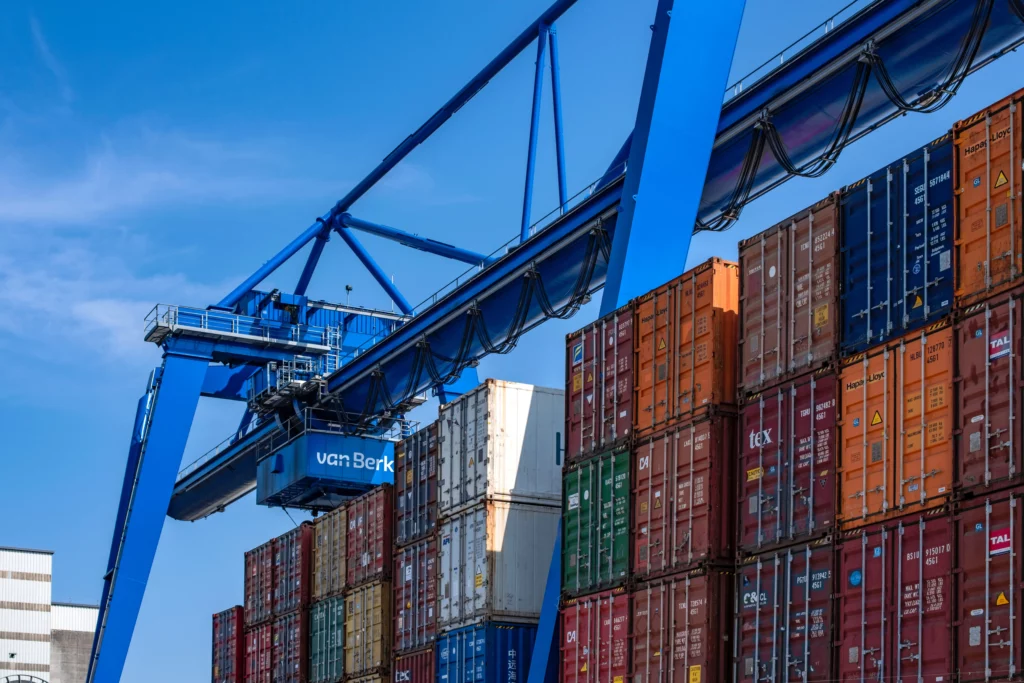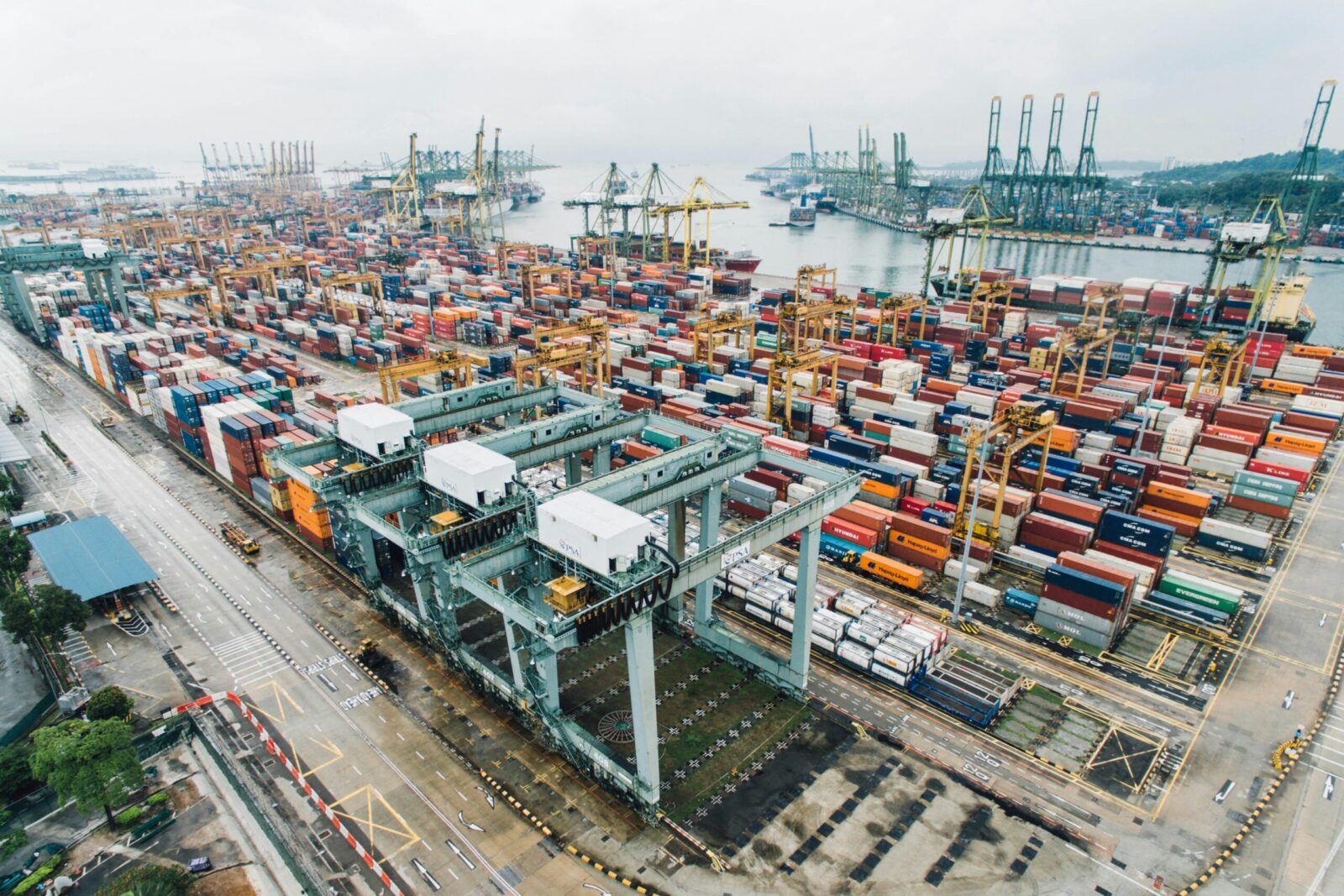
How to Optimize Supply Chain Management?
Introduction Today’s complex and turbulent business environment requires effective supply chain risk management. As global supply networks become more intertwined,...


Get 10€ off on your first order!
As the global supply chain landscape continues to evolve, businesses must stay ahead of the curve and adapt to the emerging supply chain trends of 2023.
In this article, we will explore the five key trends that will shape the supply chain industry, helping you future-proof your operations and maintain a competitive edge. From the increasing importance of sustainability to the growing role of advanced technologies, these supply chain trends will redefine the future of supply chain management.
These are the upcoming supply chain trends in 2023:

One of the most significant supply chain trends shaping the industry in 2023 is the increased focus on sustainability and the adoption of circular economy principles.
As consumers and businesses become more environmentally conscious, companies across various industries must prioritize reducing their environmental impact and promoting sustainable practices throughout their supply chains. By embracing sustainability, businesses can address supply chain issues related to environmental concerns and contribute to a more sustainable future.
For example, in the apparel supply chain industry, companies are exploring ways to minimize waste and optimize resource usage. They are designing products for longevity and recyclability, sourcing sustainable materials, and implementing innovative waste management solutions. Thanks to circular economy principles, businesses can contribute to the reduction of waste generation and the preservation of natural resources in the supply chain.
Similarly, in the food supply chain industry, sustainability initiatives involve implementing environmentally friendly packaging solutions, optimizing transportation routes to reduce carbon emissions, and supporting local and organic farming practices. These efforts ensure the longevity of the supply chain while minimizing its ecological footprint.

The disruptions witnessed in the global supply chain industry during the COVID-19 pandemic have emphasized the need for greater supply chain resilience and agility.
In 2023, businesses in the supply chain industry will prioritize building robust and adaptable supply chains to mitigate risks and maintain operational continuity in the face of unforeseen challenges.
To achieve supply chain resilience, companies will diversify their supplier base, reducing dependence on a single source and minimizing the impact of supply chain issues caused by disruptions. Regional or local sourcing strategies can also mitigate risks associated with long-distance transportation and geopolitical uncertainties in the supply chain industry.
Furthermore, agility in the supply chain is crucial for quickly responding to market shifts and changing customer demands. Agile strategies include implementing flexible production processes, demand-driven inventory management, and real-time collaboration with suppliers and partners in the supply chain industry. These practices enable businesses to adapt swiftly to fluctuations in demand, ensuring timely delivery of products and maintaining customer satisfaction.
As supply chains become more complex and interconnected, collaboration and transparency are vital for driving efficiency and mitigating supply chain issues.
In 2023, there will be a growing emphasis on forging strong partnerships and sharing information throughout the supply chain industry.
Blockchain technology, for instance, is gaining traction in supply chain management. It provides a secure and transparent platform for recording and sharing data among supply chain partners, addressing supply chain issues related to trust and data integrity. By leveraging blockchain, companies can enhance trust, streamline operations, improve traceability, and mitigate the risk of counterfeit products in the supply chain industry.
Collaborative initiatives such as vendor-managed inventory programs, where suppliers take responsibility for inventory replenishment based on shared data, promote closer collaboration between suppliers and retailers in the supply chain industry. This approach optimizes inventory levels, reduces stockouts, and improves overall supply chain efficiency.
The rapid growth of e-commerce and the increasing demand for seamless omnichannel experiences are reshaping the supply chain industry in 2023.
As online shopping continues to expand, businesses must adapt their supply chain strategies to meet the unique requirements of e-commerce and omnichannel retail.
To fulfil the demands of e-commerce, companies need to invest in advanced warehouse automation technologies. Robotic picking systems, for example, can improve order fulfilment efficiency by autonomously selecting and packing items in the supply chain industry. Autonomous guided vehicles (AGVs) can optimize warehouse operations by navigating through the facility and transporting goods, reducing the reliance on manual labour and increasing productivity.
Additionally, the logistics network must be flexible and efficient to accommodate the growing volume of online orders. Last-mile delivery solutions, such as utilizing drones or crowdsourced delivery platforms, can ensure speedy and cost-effective delivery to customers’ doorsteps in the supply chain industry. Click-and-collect options, where customers can pick up their online orders from physical stores or designated collection points, provide convenience and flexibility for consumers.
Furthermore, businesses must integrate their online and offline channels seamlessly to create an omnichannel retail experience. This requires synchronizing inventory data across all channels, enabling customers to view product availability and make purchases regardless of the sales channel they choose.
Supply chains must adapt to the increased complexity of managing multiple channels while maintaining efficient inventory management and order fulfilment processes in the supply chain industry.
The rise of advanced technologies such as artificial intelligence (AI), machine learning, and the Internet of Things (IoT) is revolutionizing supply chain management. These technologies enable businesses to collect and analyze vast amounts of data, leading to more informed data-driven decision-making and improved operational efficiency in the supply chain industry.
In 2023, an increasing number of companies in the supply chain industry are expected to adopt these advanced technologies to optimize their operations. AI-powered demand forecasting tools, for instance, can provide more accurate predictions, enabling businesses to effectively manage inventory levels, reduce stockouts, and improve customer satisfaction. Similarly, the IoT facilitates real-time tracking of assets and goods, enhancing visibility and control throughout the supply chain.
Another example of advanced technology in supply chain management is the use of robotics and automation. Companies are leveraging robotic systems for warehouse operations, such as automated picking and sorting, to enhance efficiency and speed in order fulfilment. This technology streamlines processes, reduces the risk of supply chain issues caused by human errors, and ultimately improves customer experience while reducing costs.

As we look ahead to the emerging supply chain trends in 2023, businesses in the supply chain industry must be prepared to:
Now is the time to future-proof your supply chain and capitalize on the latest industry trends in the supply chain industry. Whether it’s adopting sustainable practices, leveraging advanced technologies, enhancing supply chain resilience, fostering collaboration, or optimizing e-commerce capabilities, taking proactive steps will ensure your business remains competitive and well-equipped for the future.

Thank you! You've signed up for our newsletter.



















Introduction Today’s complex and turbulent business environment requires effective supply chain risk management. As global supply networks become more intertwined,...

Lean logistics applies lean management to supply chain performance. Lean Logistics eliminates non-value-added procedures to improve commodity flow and cut...

Introduction Rapid technical breakthroughs and changing market conditions are shaping supply chain management. Businesses must adapt to these changes to...

Introduction Today’s complex and turbulent business environment requires effective supply chain risk management. As global supply networks become more intertwined,...

Lean logistics applies lean management to supply chain performance. Lean Logistics eliminates non-value-added procedures to improve commodity flow and cut...

Introduction Rapid technical breakthroughs and changing market conditions are shaping supply chain management. Businesses must adapt to these changes to...
Get 10€ off on your first order!
Save 30% by buying directly from brands, and get an extra 10€ off orders over €100
Save 30% by buying directly form brands, and get an extra 10€ off orders over €100